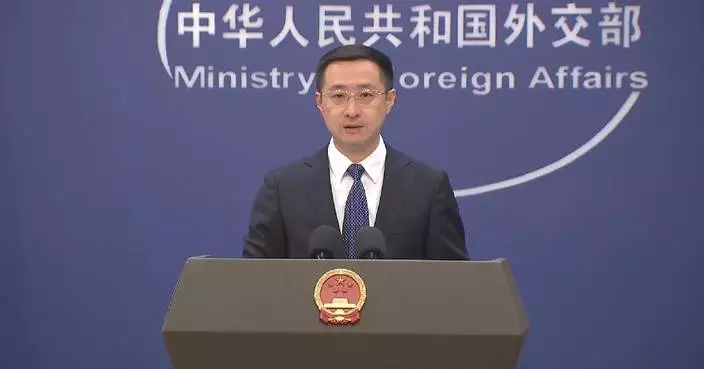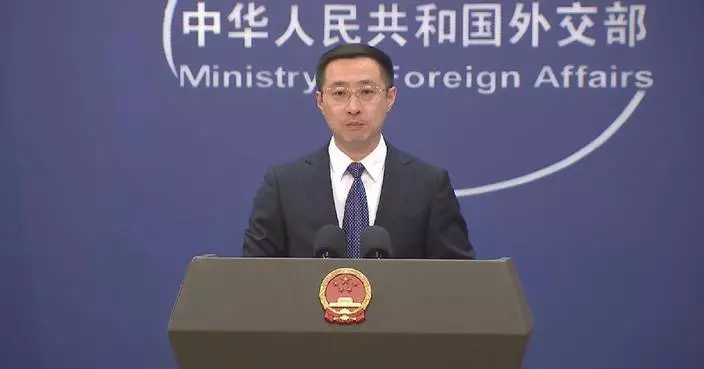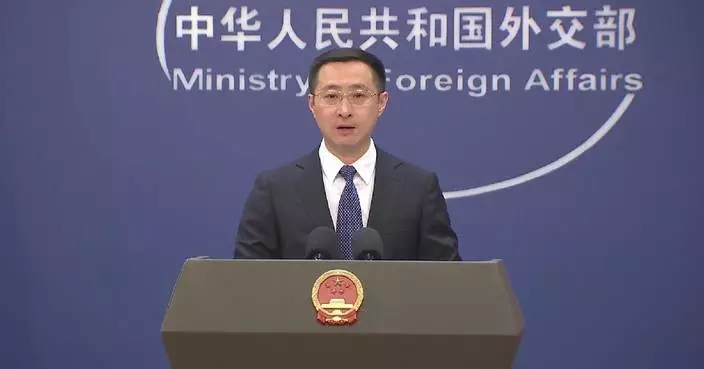China's thirst for coffee continues to grow with an industry report unveiled at a coffee carnival in Shanghai on Wednesday showing the Chinese market has posted strong growth momentum alongside an increasing global consumption trend.
The ninth Lujiazui Coffee Festival opened in the heart of Shanghai on Wednesday, with the Global Coffee Industry Development Trends Insight Report and Index also being released at the event's opening ceremony.
The report showed that global coffee consumption reached 10.62 million tons in 2023, up 2.2 percent from the previous year, with a staggering total of 3 billion cups of coffee being consumed around the world every day.
It also detailed how the Chinese coffee market has expanded significantly, becoming one of the driving forces of the global coffee industry.
"The coffee industry in China is in a period of rapid expansion. [Its industrial scale] is estimated to be around 300 billion yuan (about 42.17 billion yuan), and it should maintain a double-digit growth rate every year," said Zhang Zhaoxin, a researcher at the Research Center for Rural Economy under China's Ministry of Agriculture and Rural Affairs.
The five-day coffee festival in Shanghai has brought together more than 260 brands and over 100 boutique coffee shops from around 70 cities around the world, offering a wide selection of flavors to coffee fans.
"When I came to this place, I felt that I could see some new stores that I had not seen before, which is very interesting," said a local.
"Like the specialty drinks of many boutique restaurants, they always have some very diverse products to attract us. Shanghai's coffee culture is very inclusive," said another attendee.

Report highlights China's growing thirst for coffee as fans flock to Shanghai festival
HarmonyOS NEXT has laid the foundation for China to build an operating system ecosystem, said an expert on Tuesday following the launch of the first fully homegrown operating system developed by Chinese tech giant Huawei.
Huawei on Tuesday released the milestone operating system in Shenzhen City of south China's Guangdong Province, marking a watershed achievement in developing China's homegrown mobile operating system.
It has also become the third-largest mobile operating system, following Apple's iOS and Android.
The newly released native HarmonyOS has achieved full-stack independent development, covering everything from the operating system kernel, file system, programming language, compiler, and programming framework, to the AI framework and large models.
It has become China's first fully independently-developed mobile operating system. Previous versions of HarmonyOS had utilized parts of Android's open-source code.
"The function [of our operating system] has leaped forward thanks to our brand-new systemic framework. We've deeply integrated the ecosystem of software, hardware, and cloud, resulting in a more than 30 percent increase in smoothness. With our new distributed soft bus [system], we've achieved seamless cross-end collaboration, enabling a smoother delivery. This marks a further upgrade in our full-scenario experience, with connection speeds tripling, connection capacity increasing fourfold, and power consumption reduced by more than 20 percent," said Yu Chengdong, executive director of Huawei.
The biggest difference between the newly released HarmonyOS and Android or Apple's systems lies in its use of a distributed architecture, which enables cross-device collaboration. Developers can achieve one-time development and multi-device deployment. This stems from the fact that HarmonyOS was initially designed with the Internet of Everything in mind.
It is known that there are now over 15,000 native HarmonyOS applications and meta services available, covering 18 industries. General office applications can provide services to more than 38 million businesses nationwide.
"We've often said [in the past] that China's IT industry lacked both chips and 'soul'. After the chip issue was addressed, we still lacked our own 'soul' due to our dependence on foreign operating systems. With the launch of Huawei's HarmonyOS, we've largely addressed this issue. If we compare the Internet to a piece of land, we finally have our own land where we can plant our own 'crops'. In the past, we were planting our crops on someone else's land. The success of HarmonyOS has established a model for building an operating system ecosystem, which I believe is the most pivotal achievement," said Xu Zhen, researcher, Institute of Information Engineering, Chinese Academy of Sciences.

HarmonyOS NEXT symbolizes ingenuity of China's homegrown operating system: expert

HarmonyOS NEXT symbolizes ingenuity of China's homegrown operating system: expert











